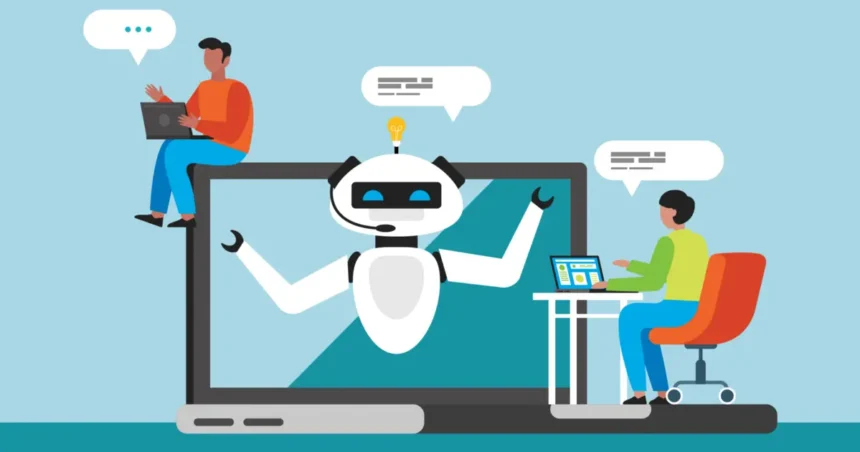AI Transforming the Workplace
Artificial Intelligence (AI) has moved beyond science fiction—it’s actively redefining how modern workplaces operate across sectors. From automating routine tasks to enhancing decision-making, AI is revolutionizing how we work. This article explores the ways AI is being integrated into various sectors, its benefits, and the challenges it brings to the modern workplace.
Examples of AI at Work
Thanks to its adaptability, AI is making a strong impact across a wide range of industries. Here are some standout examples:
Healthcare
- Diagnosis and Treatment: AI tools analyze medical data to assist doctors in diagnosing diseases faster and suggesting personalized treatment plans.
- Patient Care: Virtual assistants powered by AI manage appointments and provide round-the-clock patient support.
Finance
- Fraud Detection: AI algorithms monitor transactions in real-time, flagging suspicious activities with unmatched accuracy.
- Investment Strategies: Machine learning models predict market trends, helping financial advisors optimize portfolios.
Education
- Personalized Learning: AI platforms adapt lessons to individual student needs, enhancing engagement and outcomes.
- Administrative Efficiency: Chatbots handle inquiries, freeing educators to focus on teaching.
These examples showcase AI’s ability to streamline operations and elevate productivity across sectors.
Benefits of AI at Work
Integrating AI into the workplace unlocks a variety of powerful benefits:
- Increased Efficiency: Automating repetitive tasks saves time, allowing employees to focus on creative and strategic work.
- Enhanced Accuracy: AI reduces human error in data analysis, reporting, and decision-making processes.
- Cost Savings: Businesses lower operational costs by leveraging AI for tasks like customer service and inventory management.
- Innovation Boost: AI-driven insights spark new ideas, products, and services, keeping companies competitive.
As one industry expert notes, “AI doesn’t just improve what we do—it redefines what’s possible.”
Challenges of AI at Work
Despite its promise, AI integration isn’t without hurdles:
- Adaptation Resistance: Employees may fear job displacement or struggle to learn new systems.
- Ethical Concerns: Bias in AI algorithms and data privacy issues raise questions about fairness and security.
- High Initial Costs: Implementing AI requires significant investment in technology and training.
- Skill Gaps: Workers need upskilling to collaborate effectively with AI tools.
Addressing these challenges is key to unlocking AI’s full potential in the workplace.
Conclusion
AI is undeniably transforming the workplace, bringing both opportunities and obstacles. Its ability to enhance efficiency and innovation is tempered by the need for careful management of ethical and practical concerns. As businesses and employees adapt, AI will continue to shape the future of work in ways we’re only beginning to understand. How is AI changing your workplace? The journey is just getting started.


